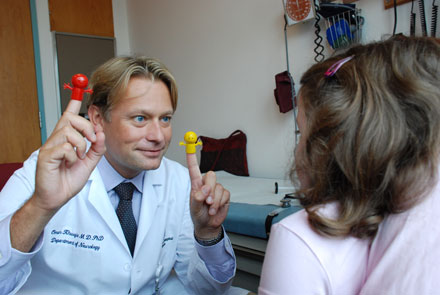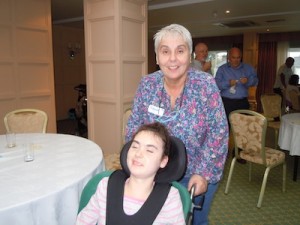Physiotherapy
Physiotherapy is a health care profession concerned with human function and movement. It aims to rehabilitate and improve people with movement disorders by using evidence-based, natural methods such as exercise, motivation, adapted equipment, education and advocacy.
As many Rett Sufferers have significant issues with functions others take for granted – for instance, seemingly small things like hand grip, to obviously larger issues like standing and walking – Physiotherapy is a key intervention and required by almost all people with Rett Syndrome.
The Therapist will try to maintain or increase motor skills, develop new ones where possible, help manage issues like Scoliosis, and can also help with some forms of pain and discomfort.
Physiotherapy can help with many of the issues that can occur with Rett Syndrome:
- Apraxia – difficulty carrying purposeful learned movement
- Dyspraxia – difficulty in planning movement
- Ataxia – generalised disorder of balance, coordination and/or speech
- Spasticity – muscle tightness or stiffness
- Muscle Tone issues
It can also help with Body Awareness, Balance and movement, and help develop joint and muscle capability.
Hydrotherapy is an exercise programme carried out in a therapy pool. Working in water gives greater sensory feedback to the subject, helps with weight-bearing and most children enjoy being in the water. Note that an ordinary swimming pool is not suitable for Hydrotherapy. Special pools which are kept warmer are required.
As Rett Syndrome affects each person differently the Physiotherapist has to assess the needs and abilities of the person and devise a programme appropriate to his or her requirements. As a parent you can help in this process. You know best what your Rett Child can and can’t do, what skills they have had and lost, what movements they like and those they avoid. You will also be aware of their limitations. You also will have some ideas of what you want for your child. With the Physiotherapist you can devise reasonable and achievable goals.
It’s important to remember that a physiotherapy programme may not be carried out by a Physiotherapist but may be done on a daily basis by a parent or care worker who has been acquainted with the programme.



